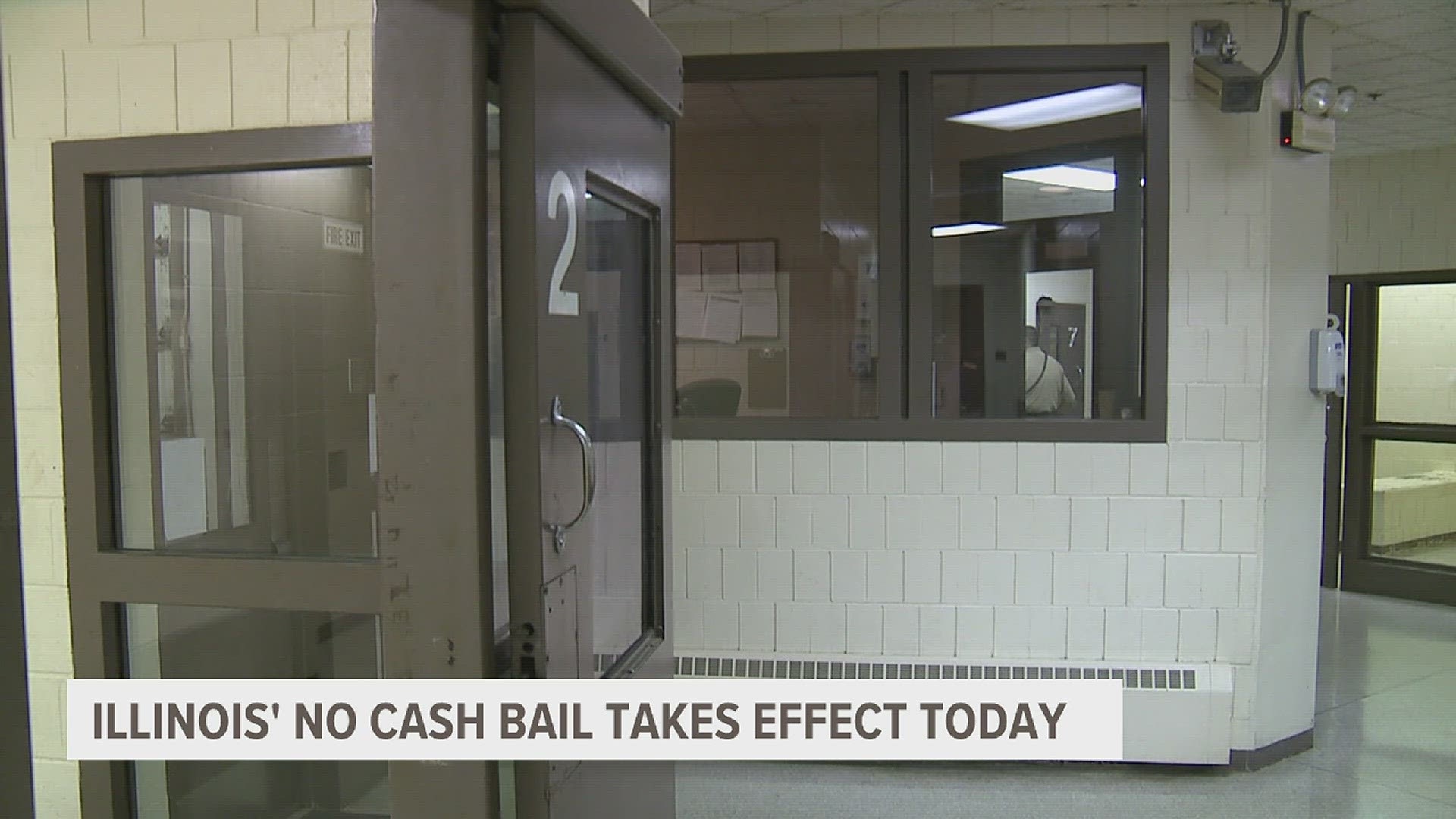ROCK ISLAND COUNTY, Ill. — The Pre-Trial Fairness Act went into effect on Sept. 18, making Illinois the first state to eliminate cash bail. At the Rock Island County Courthouse, defendants and their loved ones were hopeful they would be reunited under this controversial new act, but many were not.
Before the law took effect, anyone arrested, regardless of the offense, would be taken to a judge to determine the cash bail amount needed for them to go free until trial.
News 8 spoke to Rebecka Wright at the courthouse where she was watching her husband's hearing on the edge of her seat.
"He's being accused of possession of a controlled substance with delivery and possession of a firearm by a felon," Wright said.
Judges are tasked with determining whether defendants pose a risk to another individual or the community at large, as well as whether or not the defendant poses a flight risk if released. In Wright's husband's case, the judge felt that criteria was met.
"My heart just shattered," she said. "I thought he was coming home. I had everything ready for him to be home today." Wright says they will appeal.
In one case, the defendant was charged with having sex with a minor. He was not granted a release because the judge considered him a risk to the victim. In another case, a man was granted a release but was required to wear an ankle monitor.
Judges will also look at a person's previous criminal record when making their decision. The defendant could be in jail for a low level crime, but the judge may not grant them a release due to prior offenses.
People accused of specific low-level offenses will be required to receive a hearing within seven days of a request for one. Victims must also be notified if a suspect is being released while awaiting trial.
The law faced plenty of scrutiny, with dozens of state attorneys filing suit against it, but in July, the Illinois Supreme Court ruled it would stand.

